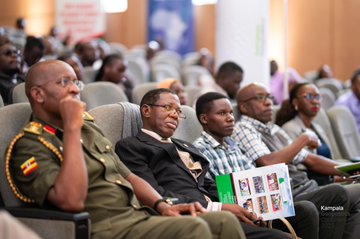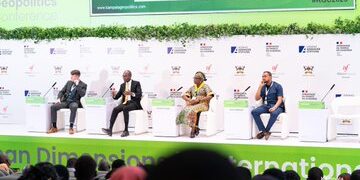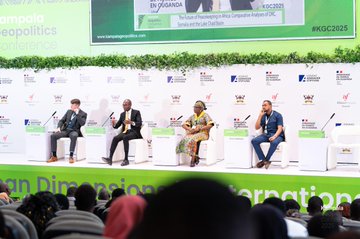As conflicts persist across the continent, experts are rethinking the future of peacekeeping in Africa, drawing insights from case studies in the Democratic Republic of Congo, Somalia, and the Lake Chad Basin.
The panellists at the Kampala Geopolitics Conference 2025, held this week at Makerere University, engaged in a deep dive into the effectiveness of current peacekeeping models and the urgent need to rethink strategies for regional stability.
Emolot Allan David, Chairperson of the Independent Continental Youth Advisory Council, Africa Continental Free Trade Area (AfCFTA), opened the conversation with a critical look at the current frameworks guiding peace operations across Africa.
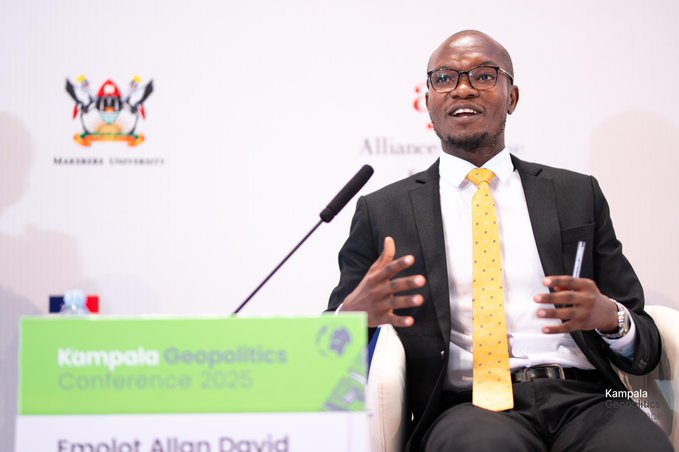
“So far, with the many peacekeeping approaches, we are not grappling with which model is the most effective,” he said. “The question is whether to let the European Union (EU), United Nations (UN) or our own African Union (AU) spearhead peacekeeping efforts in Africa.”
Emolot stressed the importance of local legitimacy and context, citing sharp contrasts between different models.
“The DRC approach is UN-led, from the armies to the diplomats — which is quite lacking in local legitimacy,” he explained. “In West Africa, though, in the Lake Chad Basin, the peacekeeping mission is highly region-oriented and led by the nations themselves.”
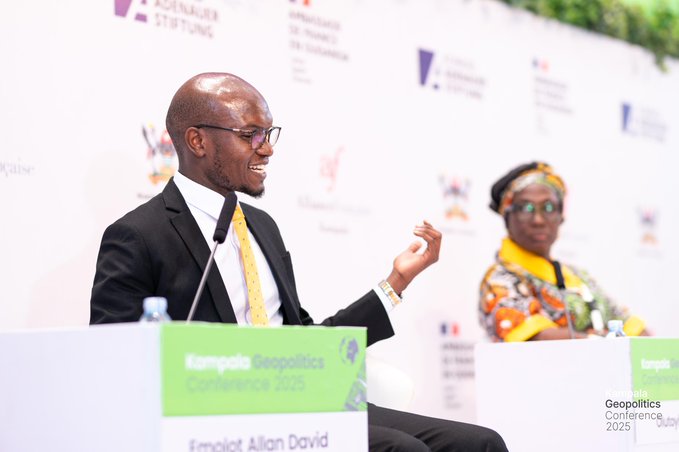
On Somalia, Emolot praised the hybrid model involving multiple players — the AU, UN, EU, and local forces. “The Somalia peacekeeping mission is unique — a hybrid approach,” he said. “It has shown progressive efforts in the bid to achieve state sovereignty. We ought to draw great lessons from this model.”
He also proposed a bold rethink of how peacekeeping is even defined. “Mission peacekeeping, for starters, I think should be renamed — because peace is kept in areas that have peace.”
Olutoyin Falade, a Peace Fellow at Rotary Peace Centre, shifted the conversation to the Lake Chad Basin, tracing the historical and environmental origins of the crisis.
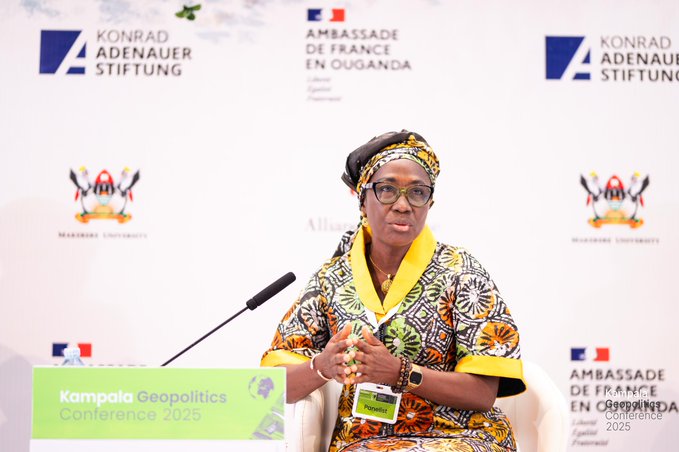
“The Lake Chad Basin Commission came up in 1964 when four countries came together to manage water resources,” she explained. “But the emergence of rebel groups led to mass displacement, worsened by climate change and the migration of cattle keepers.”
Falade pointed to the breakdown of the Multinational Joint Task Force, initially formed to tackle insecurity in the region. “The force has broken down due to the extremities of violence, compounded by poverty, unemployment, and political instability in Chad, Niger, and Nigeria.”
She emphasised that successful peacekeeping must begin with community engagement. “We ought to understand the roles of peacekeepers when they come. There is a need for advocacy among locals to receive peacekeeping missions meaningfully.”
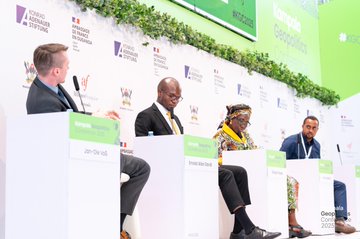
Omar Abdikadir, a Senior Policy Advisor a the Office of National Security in Somalia, highlighted the scope and diversity of peacekeeping efforts across the continent. “The number of peacekeeping missions in Africa has been over 70 — each with different purposes, in different regions and nations,” Abdikadir noted.
He echoed Emolot’s sentiments on Somalia’s mission, crediting it with creating conditions for political progress. “The African Mission in Somalia, in its initial deployment, created conditions necessary for the state to regain basic functions and facilitated political processes like elections.”
Abdikadir called for a rethink of the financial models underpinning peacekeeping, warning that unreliable funding from traditional donors could threaten future missions. “There should be a predictable financing model going forward because we are seeing funding disruptions from some traditional donors.”
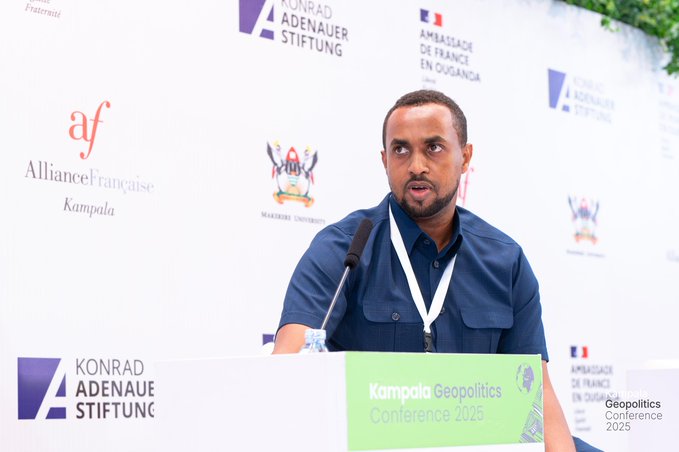
He closed with a call for better coordination between stakeholders. “Some of the preconditions for a successful mission include matching end goals between Troop Contributing Countries (TCCs) and the host nation. Consultations must be part of the design process to tailor solutions for each country.”
As conflicts in Africa grow more complex, the panel agreed that peacekeeping must evolve — not just in structure and funding, but in philosophy.
